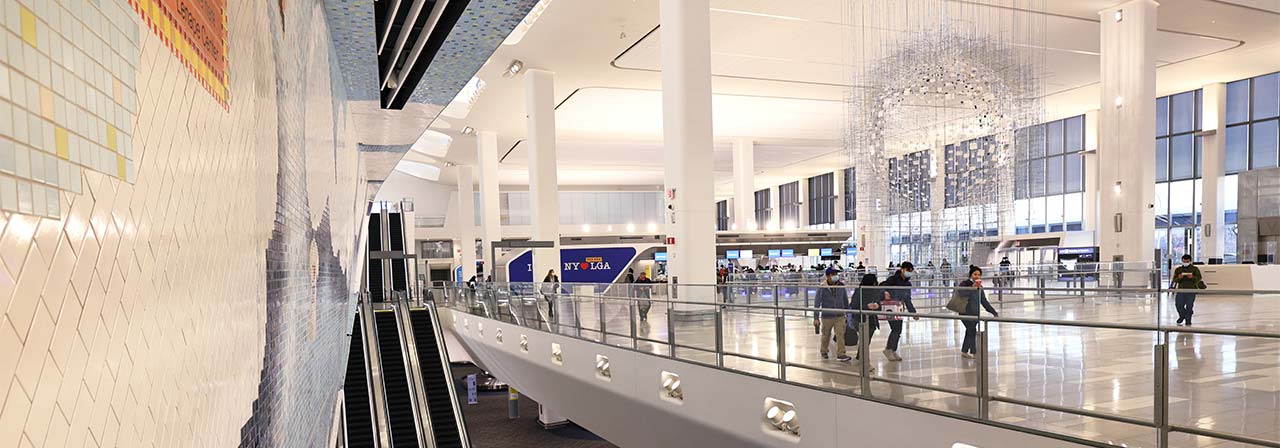PODCAST: Big news that happened while you weren’t looking
While the global pandemic was dominating headlines in 2020, airports were getting a makeover and investment funds were taken to task over climate change
While the global pandemic was dominating headlines in 2020, plenty of news likely to have a significant impact on the years to come slipped under the radar.
Take, for example, a landmark legal case set to lift efforts in the fight against climate change. Or the dizzying speed that some infrastructure projects are advancing due to the mass work-from-home experiment and general travel restrictions.
These developments may have only made a fleeting appearance on news feeds, but experts say their effects will wide-reaching.
Climate change precedent
In a ground-breaking legal case, a prominent Australian pension fund settled out of court with one of its members who had accused the fund of failing to provide information on how it was managing climate-change risks, such as the devaluation of fossil-fuel companies or damage to infrastructure by extreme weather.
With 14 percent of Australia’s A$2.9 trillion (US$2.2 trillion) pension fund wealth invested in real estate and infrastructure, the case is likely to propel sustainability efforts across the sector, says Lisa Hinde, strategic sustainability director, APAC, JLL.
“A public decision such as this one will be ricocheting across the superannuation sector, setting a new benchmark for transparency and disclosure for funds, along with an expectation of demonstrating clear sustainability efforts to future proof their assets,” she says.
Having kicked off its sustainability journey in 2007 with a commitment to purchase 100 percent GreenPower (Government accredited renewable energy) for the base building requirements of its A$717 million direct property portfolio, Local Government Super is an early mover and exemplar.
Sustainable investment strategies have helped its direct property portfolio consistently outperform the industry benchmark and enhance the retirement outcomes for members of the A$12.5 billion fund. The fund’s head of property, Scott Armstrong, maintains its values help “attract and retain tenants because there are tangible benefits, and we also expect better long-term returns from sustainable buildings.”
The fund is also transparent about vetting its tenancies for tobacco, gambling or weapons companies, which do not align with its values.
On the fast track
Another sector that has been moving at speed amid the pandemic: infrastructure.
One example is the extension of the Los Angeles Metro Purple Line. It’s almost a year ahead of schedule due to fewer people driving on Wilshire Boulevard, which is currently home to multiple tunnelling sites.
Meanwhile, New York City has been able to whizz through accessibility upgrades in more than 11 subway stations. And due to grounded airplanes, the city’s LaGuardia airport has delivered its Terminal B much earlier than expected.
The pandemic has undoubtedly been a driver of accelerated transport construction timetables, says Phil Ryan, New York-based senior research manager specialising in transport planning, at JLL.
“In the short term it definitely helps. You have all the funding, all the labor there, the materials at hand and the planning is all done,” he says. However, reduced ticketing revenues and dwindling federal government support makes long-term prospects “a little concerning.”
“Pretty much every state municipality at this point is severely in the red,” Ryan says. “I live in a city with a US$9 billion shortfall and the Metropolitan Transportation Authority has been particularly vocal about the fact that they have to effectively run an essential service with 30 percent of its normal ridership. That’s a lot of lost revenue and so to cover those losses, they’ve had to cut back pretty significantly on their capital program.”
With mobility a cornerstone of economic growth, Ryan is buoyed by the narrative of global governments around greater infrastructure investment, highlighting that some projects can deliver an economic return three times the initial investment.
“I think very much as a recovery measure, infrastructure will benefit,” he says.
